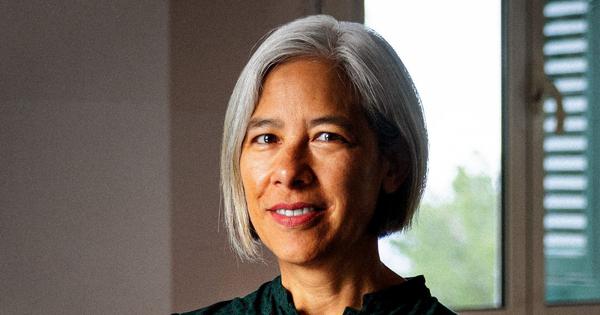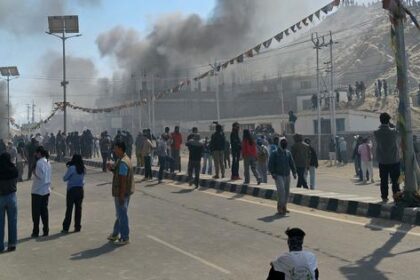Exploring fragmented identities and complex family dynamics in Susan Choi’s compelling narrative of grief and resilience.
Susan Choi’s sixth novel, Flashlight, which has been shortlisted for the Booker Prize, originated as a short story in The New Yorker in 2020. Set against the backdrop of the Covid pandemic, the novel delves into themes of fragmented families, unresolved trauma, and the complexity of human relationships, all while maintaining an air of spectral hope amidst irrevocable loss.
The narrative begins with a memory involving ten-year-old Louisa and her father, Serk Kang, as they stroll along a shore while her mother, Anne, remains confined to their rented house. In a brief yet poignant scene, the reader witnesses the bond between father and daughter, juxtaposed against Louisa’s complex feelings towards her mother, who is unable to engage with them due to her illness. This dynamic sets the stage for the decades-long conflict that unfolds between them, highlighting the complexities of family relationships and the emotional scars left by grief.
Spanning an impressive 464 pages, Flashlight reconstructs the history of three generations of the Kang family, whose lives intertwine across Korea, Japan, America, and China. The story of Serk, who initially pursues a doctorate at the University of Massachusetts, is one of identity and belonging. Born in Japan to parents who fled the Korean War, he navigates a world of shifting identities, struggling with his heritage and the imposed labels that come with it. The narrative explores how identity becomes a point of contention, particularly when power dynamics are at play.
Choi illustrates the impact of autocratic regimes on individual identities, although the core of the story revolves around the relationships between its characters. The family, traditionally viewed as a stable unit, emerges as a destabilizing force in Louisa’s life. The author crafts a narrative that captures the inevitability of tragedy, as Louisa perceives her parents’ lives as marked by failure and disappointment. This lens of perception magnifies the tension between Louisa and Anne, especially as Louisa distances herself from her mother and her father’s heritage.
The death of Louisa’s father serves as a pivotal moment, anchoring her in a cycle of resentment and defiance. The novel poignantly depicts Louisa’s struggles with her grief, showcasing how it can distort affection into cruelty and empathy into aversion. As she grapples with her memories of her father, the narrative highlights the fragility of recollection and the emotional weight it carries.
Choi’s exploration of grief and the emotional complexities it entails is particularly resonant in contemporary society, where personal liberties are increasingly under threat. Flashlight stands out not only for its reflective prose but also for its ability to lay bare the uncomfortable truths of modern existence. Louisa’s experiences illuminate the dissonance between the idealized familial structures depicted in media and the often chaotic reality of familial relationships. Through its intricate storytelling, the novel invites readers to confront the unsettling nature of memory and the haunting presence of loss.








